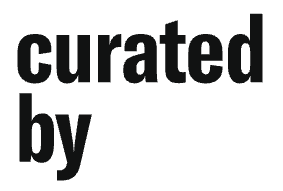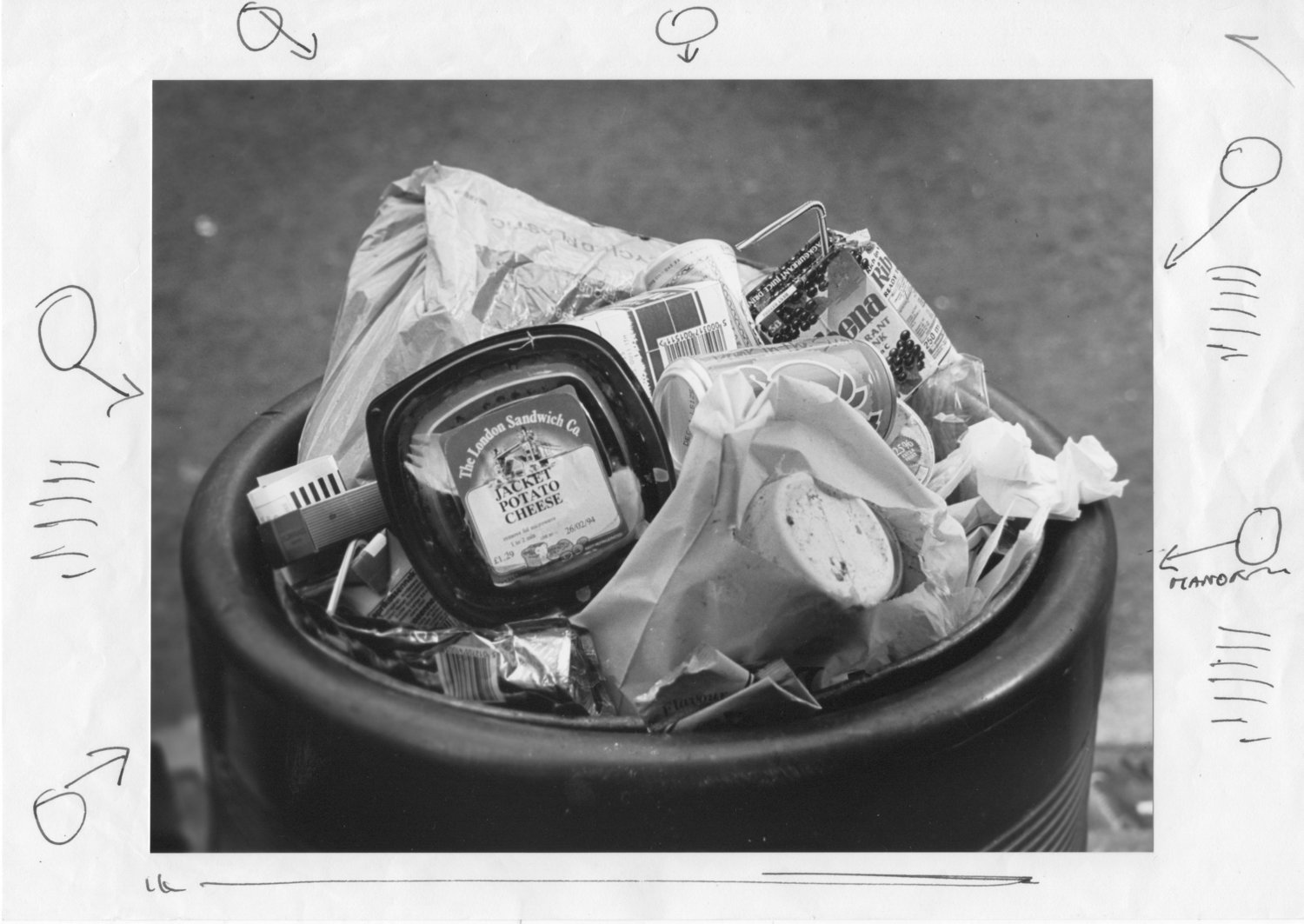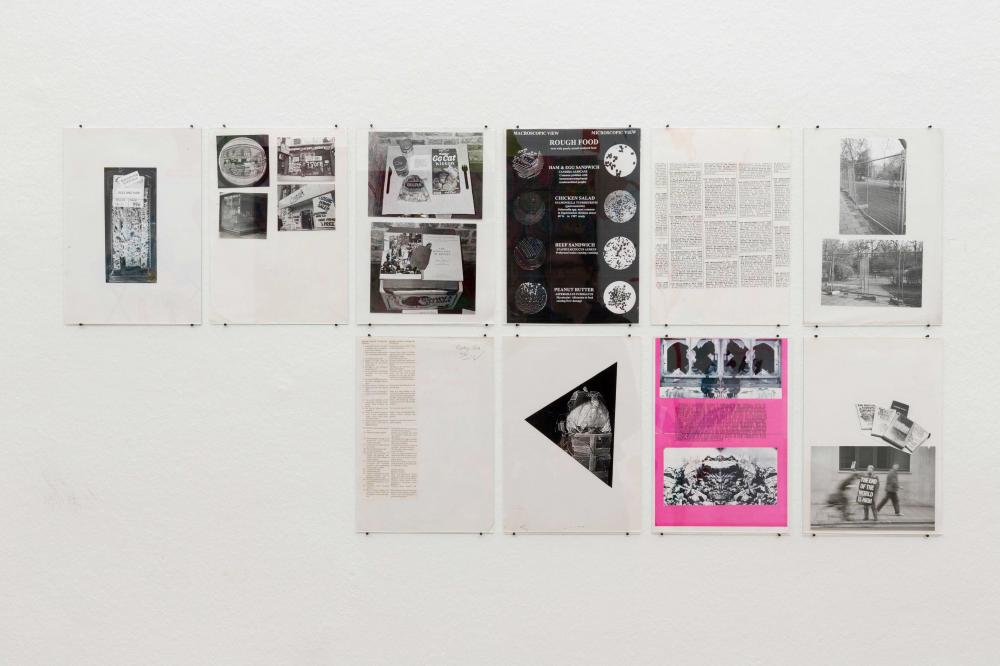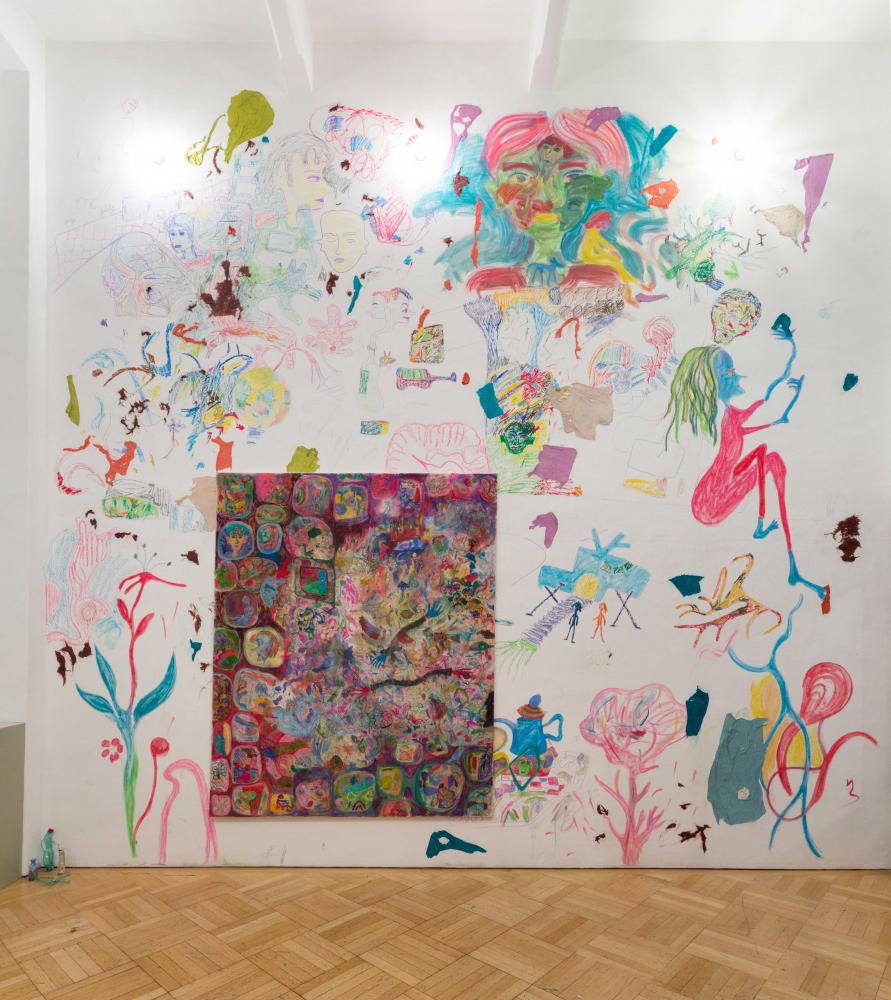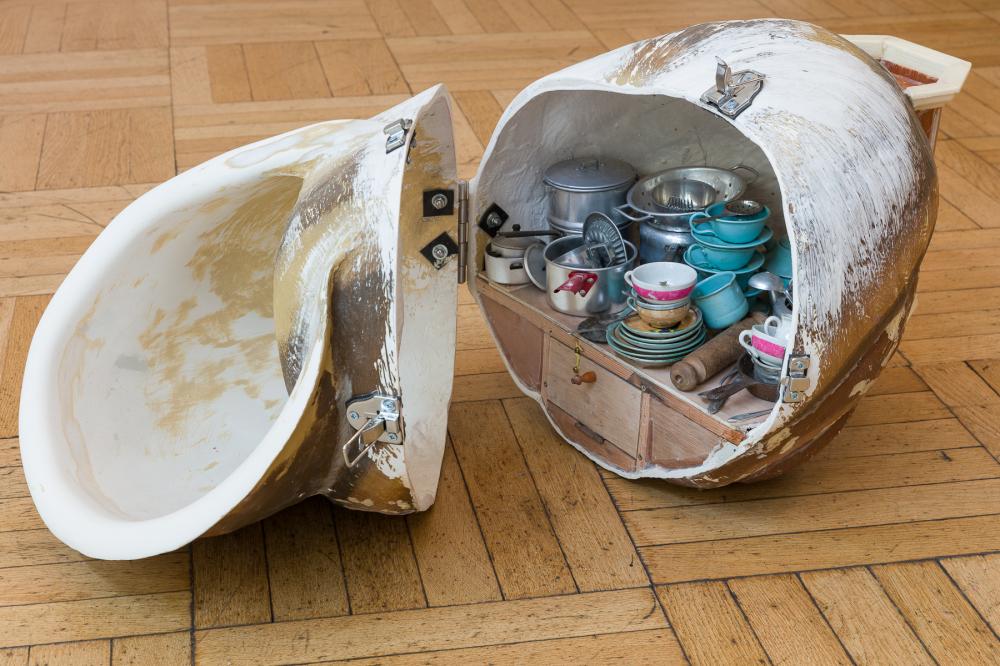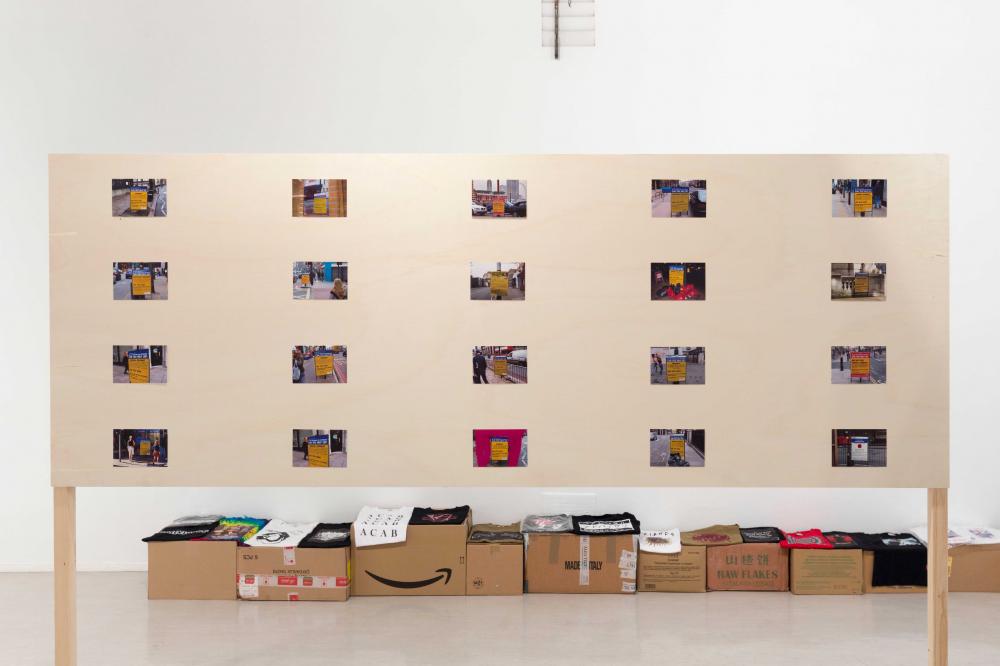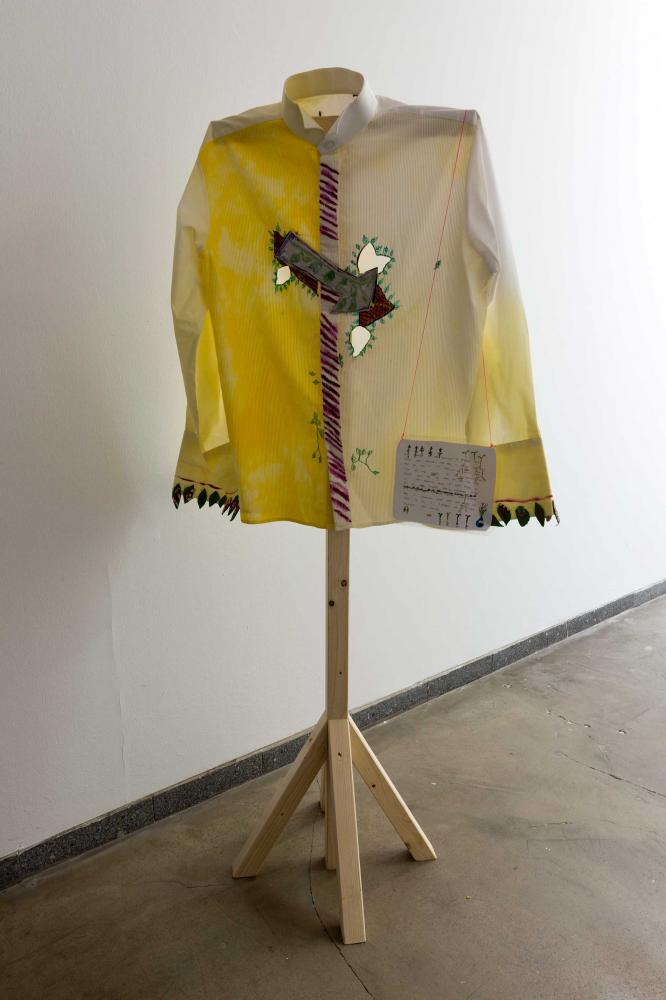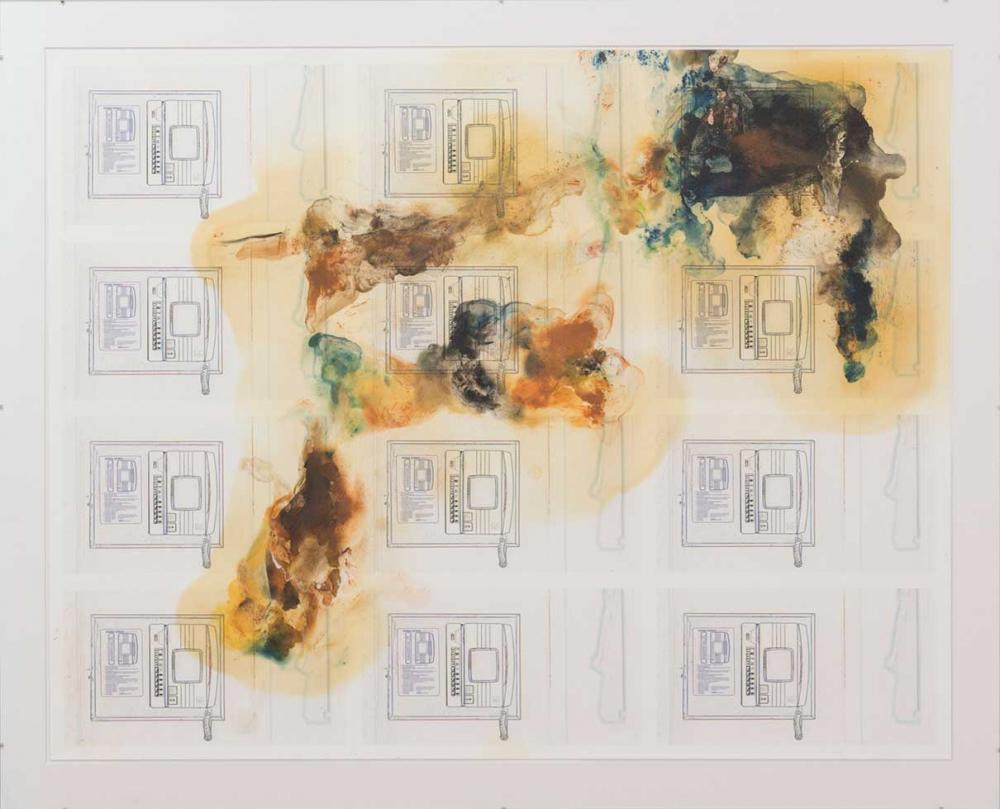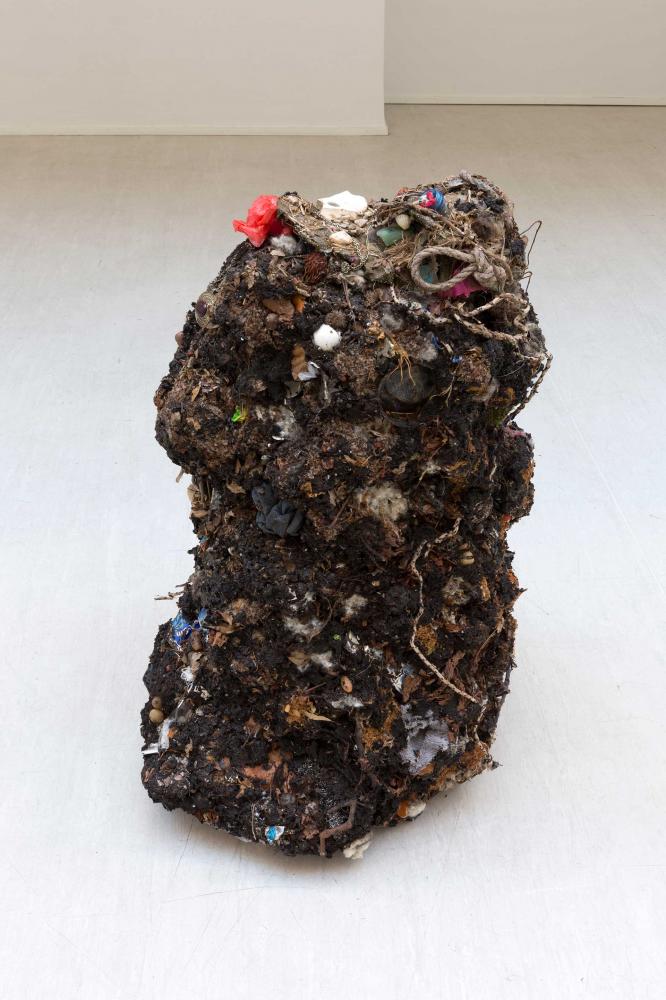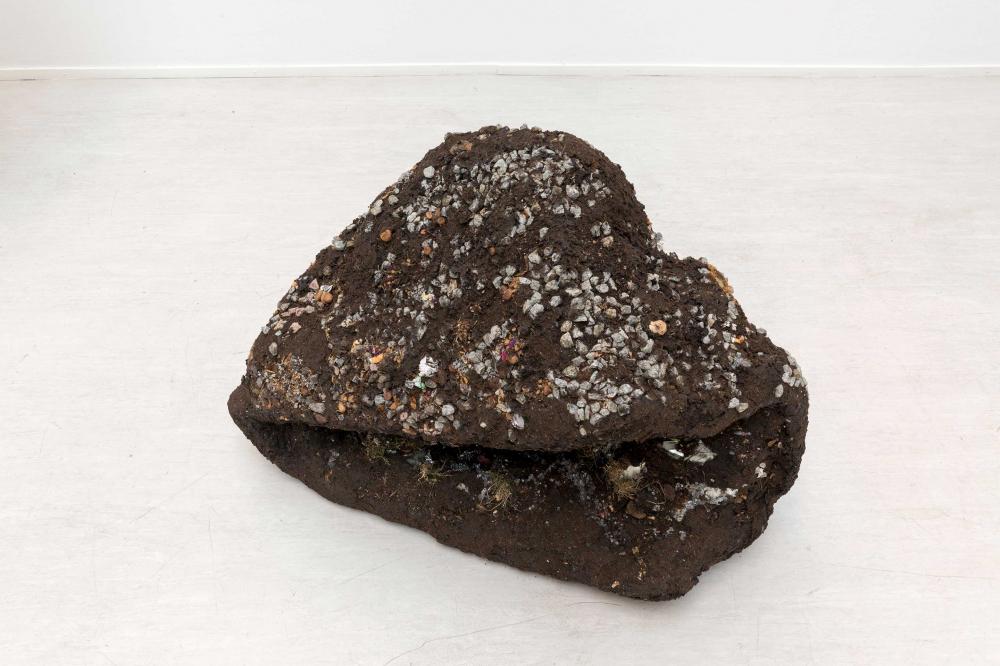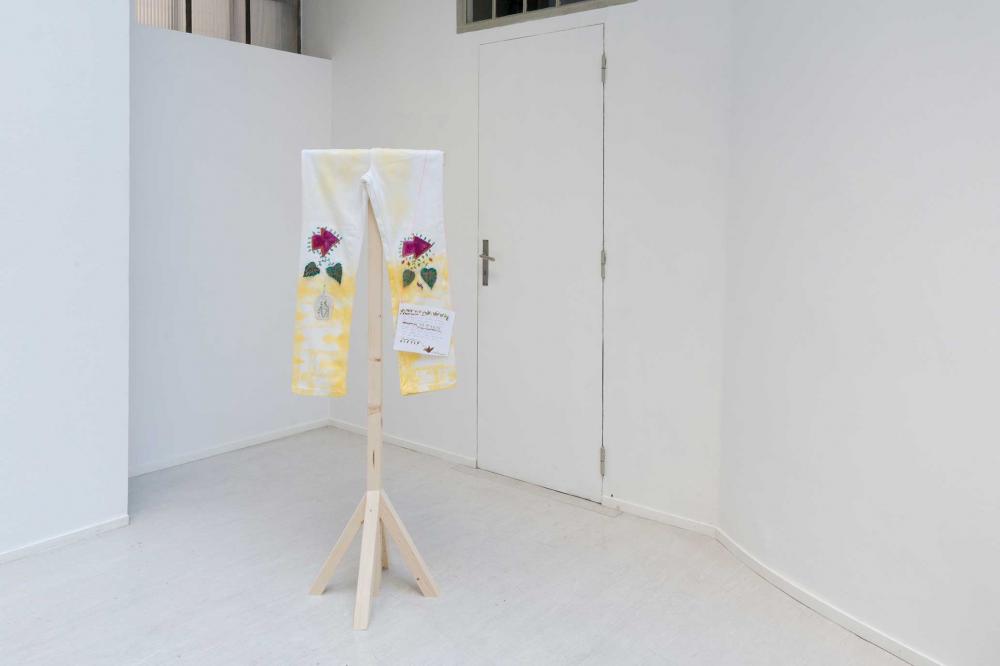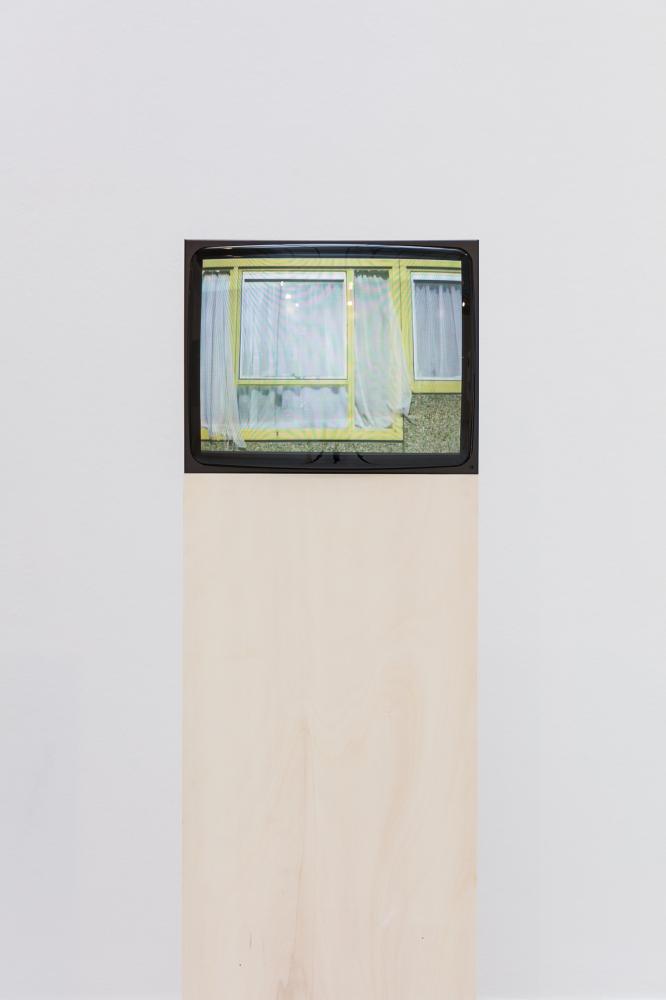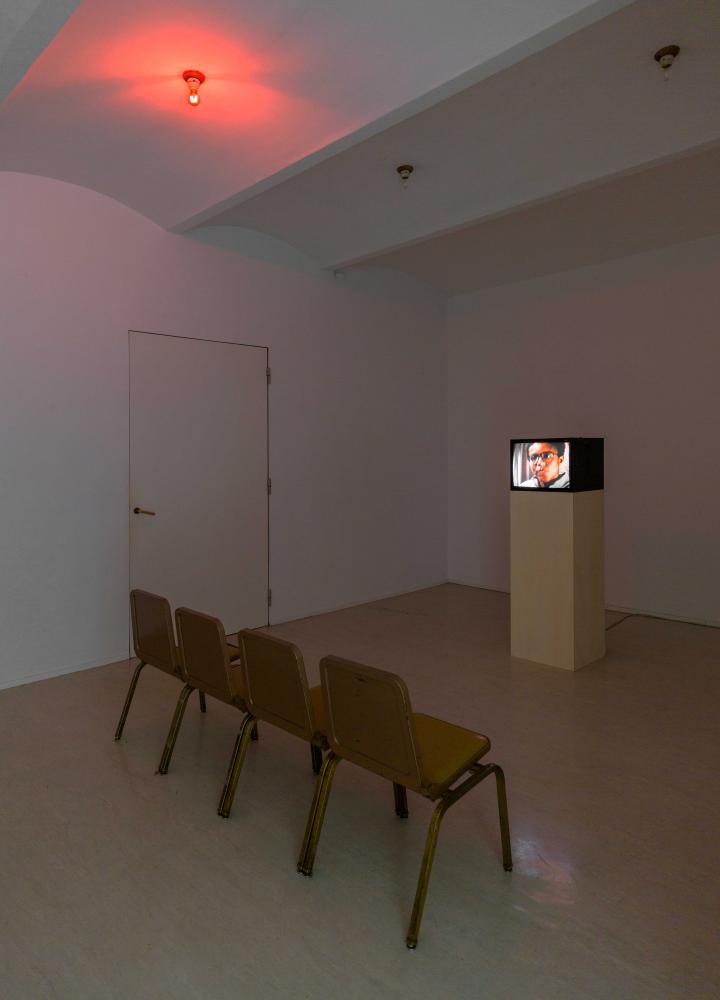Lombardi—Kargl curated by Paul Pieroni
„Scenes of the Crimes“

BOX, Schleifmühlgasse 5, 1040 Vienna
PERMANENT, Schleifmühlgasse 17, 1040 Vienna
www.lombardi-kargl.com since 2023
www.georgkargl.com 1998-2023
Curator(s):
Paul PieroniArtist(s):
- Kitty Kraus
-
Terry Dennett More* 1938 in Chigwell, died 2018 in Islington Terry Dennett was a photographer, social historian, activist, theorist, workshop organiser, publisher and archivist. During the 1970s he was central to establishing a number of collective projects, including Photography Workshop alongside his long–time collaborator Jo Spence, and Camerawork Journal. He continued to work collectively throughout his life. His photography ranged from radical social documentary, to agitprop, to workshop creations and exhibitions with children in community groups. Meanwhile, he was active as a researcher, with a particular commitment to the untold history of worker photography in the 1930s. Out of this work, he established the broadside ‘The Worker Photographer’ (its name derived from early 1930s German Magazine ‘Der Arbeiter Fotograf’), which reported on contemporary social struggles, as well as promoting ways that activists could use photography to intervene against the destructive course of capitalist history. As well as being a social historian, he was deeply concerned with the technological history of photographic production and reproduction. Even in his work with children he introduced them to these processes, teaching them not only how to shoot, develop and print their images, but also how to make photo–paintings and photograms. He also took his deep technical knowledge to establish new ways for children to make their own cameras out of anything from cardboard boxes to wellington boots. Much of his work centred on creating images of dilapidation, deprivation, and wretchedness in the urban environment. He would often use collage and the juxtaposition of image and text to draw historical parallels between moments of capitalist crisis. His photographic landscapes look almost coldly at how, in the phantasmagoria of urban decay, the capitalist city seems to ironically comment on its own excrescences. Often, too, his annotations of contemporary media would display a grimly playful backward–looking humour, to be set against the present. His collaboration with Jo Spence continued through the documentation of her illness, and in establishing phototherapy during the 1980s in The Final Project' After her death in 1992 he became the archivist of her work, creating the Jo Spence Memorial Archive in his flat on Upper Street in Islington, and assisting a generation of scholars and researchers who wanted to explore and understand her oeuvre. (text: Jacob Bard Rosenberg, May Day Rooms, London)
-
Max Brand More* 1982 in Leipzig, lives in Berlin Max Brand produces densely layered, energetic, colourful canvases and wall paintings, as well as small-scale sculptures, videos and performances using music and light. He lives and works in Berlin and graduated in 2010 from the Städelschule Frankfurt/Main. Recent exhibitions include Gallery of Modern Art, Glasgow; 9th Berlin Biennale for Contemporary Art; MAVRA, Berlin, and Galerie Bernhard, Zurich Off Vendome, New York.
-
Holly White More* 1985 in London, UK, lives in Glasgow, UK Holly White is an artist currently living in Glasgow. She works in a range of media including installation, video, websites, workshops, ceramics and podcasts. Recent solo shows include Being Together at Almanac, Turin, Orange World at Cordova, Barcelona, and I need your love is that true, at Jupiter woods, London. Her work has been included in group presentations at David Roberts Art Foundation, Tate Britain, Auto Italia, Raven Row, Serpentine Gallery and The Approach.
-
Ryan Siegan Smith More* 1982 in Cumbria, UK, lives in Berlin, UK Presentations Include 'Ariadne's Phylogenetic Shoelace', Berlin. 'Inspired Work' Jo Brand, Glasgow 'La Colline' (with Hélène Fauquet) Schiefe Zahne, Berlin and Frieze Frame, London. The works currently exhibited were produced in Malta, UK and Berlin.
-
Matthew Richardson with Louis Backhouse and Anna Susanna Woof MoreMatthew Richardson (* 1985 in Warrington, UK, lives in Berlin, DE, and Lancashire, UK) Louis Backhouse (*1992 in Wales, UK, lives in London, UK) Anna Susanna Woof (* 1990 in Newcastle upon Tyne, UK, lives in Berlin, DE) Matthew Richardson's recent exhibitions include Piper Keys, (solo), ALIEN, Sandy Brown, Berlin, both 2018. How We Live and How we Might Live (with Anna Susanna Woof and Josephine Pryde), LONDON, London, UK , 2016, Angel Food (Solo Exhibition), 2016, Integration (with Alan Michael), Galerie Gregor Staiger, Zurich, CH, 2015. He Studied at The Slade school of Fine Art, London, UK, The Glasgow School of art, UK and Städelschule, Frankfurt am Main, DE. Louis Backhouse's recent exhibitions include Notes On Weight: Kivexa Virginia, Lima Zulu, London, UK, 2017, Piper Keys (With Matthew Richardson), London, ALIEN, Sandy Brown, Berlin, DE, both 2018. Backhouse regularly collaborates with the artist duo New Noveta. He studied at Central St. Martins, London, UK. Anna Susanna Woof's recent exhibitions include Subsets, (Group) Christian Anderson, Copenhagen, DK, 2019; Gate (Solo), Walks News, Berlin, DE, 2017; Residence (Solo), Le Bourgeois, (Solo) London, UK, 2017; Natural Presentation (Solo), TG, Nottingham, UK, 2016. In 2018, Woof completed a residency at WIELS Centre of Contemporary Art, Brussels, BE. She studied at the Städelschule, Frankfurt am Main.
-
Caspar Heinemann More* 1994 in London, UK, lives in London
-
Jimmy Merris More* 1983 in UK , lives in West Norwood Jimmy Merris makes videos, sculptures, paintings and prints. Recent exhibitions include Frieze London (solo, Seventeen Gallery), Life eh, Tut, SWG3, Glasgow, Die Hoffnung, Seventeen Gallery, London, Julie og Jimmy go dogging, Hordaland Kunstsenter, Bergen, (w/Julie Verhoeven), LONDON, Bloomberg Space, London, and Deep Joy on Home Soil, Studio Voltaire, London.
-
Marlie Mul More*1980 in The Netherlands, lives in Brussels Marlie Mul is an artist whose art work manifests somewhere in between sculpture, painting, education, distribution, writing, experiments in branding, the social, and the virtual. She teaches in the MFA WorkMaster at HEAD (Haute école d’art et de design) in Geneva, Switzerland. With Harry Burke, Marlie Mul co-edits ground, a counter-institutional fanzine that sets out to look beyond institutions in their current form as dominant frameworks for artistic production, and embraces grassroots political and aesthetic perspectives.
-
David Graham Scott MoreDavid Graham Scott is a filmmaker who lives and works in Scotland. A controversial documentary filmmaker from the Scottish Highlands, David Graham Scott's films are unique visions of the world he inhabits and the offbeat characters he encounters. Very much in the vein of gonzo journalism he often completely immerses himself within the subject. He has experience in directing, pitching new ideas, researching and camera operation. He's also a trained film archivist and a university graduate in Film Theory/Art History. David has worked on hard-hitting projects including WireBurners, Detox or Die and Iboga Nights. His films have been broadcast by the BBC and won various awards (eg Iboga Nights voted as Best UK Documentary at Open City Docs Fest 2014) Little Criminals (2001), video, 64 minutes, colour, sound. Little Criminals is a feature biopic by film-maker David Graham Scott about the Glasgow junk scene. Shooting over much of 1999, Scott follows a disparate group of heroin-addicted shoplifters and creates a vivid insight into this strange and sordid subculture. The scams to finance their addictions and the sheer monotony of the injecting rituals are unflinchingly portrayed throughout the film. A father-and-son shoplifting team have to be evermore resourceful in their search for new pickings; an educated man struggles with his escalating habit and his work commitments; two brothers use heroin to stabilise their mental health problems; and the idiosyncratic DL, recently released from prison, dices with death with his first big hit in months. How will they all fare with the dawning of the new millennium and how does the experience affect the once-addicted film-maker? Wireburners (2003), video, 30 minutes, colour, sound. David Graham Scott’s personal odyssey into the lesser-known aspects of Glasgow’s street culture takes us into the land of the wireburner. He follows various characters through the streets of the city as they reclaim discarded materials from skips and bins for small monetary gain. What motivates someone to live off scrap and rubbish? How lucrative is the job and what materials are most sought after? The guys who do this type of work are generally unemployed, homeless and have drug and alcohol problems. Many of their associates within this underclass beg and steal to feed their habits, but these people are making some effort to alleviate their condition by legal means. The main drive of this film is to uncover the positive qualities that exist within society’s underclass but without assuming a patronising attitude. The Dirty Digger (2007), video, 30 minutes, colour, sound In this film Scott joins a controversial Glasgow magazine, The Digger, as it's court photographer naming and shaming gangsters, petty criminals and paedophiles. The ethics of the paper and the role of vigilante journalism are questioned in this gritty documentary from the late-00s.
-
Richard Sides and Gili Tal MoreRichard Sides (*1985 in Rotherham, UK, lives in Berlin and London) Gili Tal (*1983, lives in London, UK) Richard and Gili made this work as part of a collaborative exhibition in 2017 called 'Reduced to Clear', at Le Bourgeois, Catford. It was later extended for its inclusion in a group show, 'Readymades Belong to Everyone', at the Swiss Institute, NYC, the following year.
-
Lena Tutunjian More* born in Doha, QAT, and lives in London, UK
- Stuart Middleton
- Black Audio Film Collective
- Bonnie Camplin
Exhibition text
More
I am an observer-participant living in these present times with a social responsibility to communicate my observations to others when this is possible. It falls to me to leave a catalogue of today’s “scenes of the crimes” for future generations so lives and struggles are not totally lost to history. This goes beyond the usual documentation of demonstrations to encompass the wider everyday which appears so ordinary that most people do not bother to record it.
Terry Dennett, artist statement, 2011
The work of British photographer, social historian, activist and archivist Terry Dennett (1938–2018) between the 1970s and 2000s was centred on the production of images of social dispossession in London. Part of a critical recovery of documentary that began in mid-1970s art, Dennett – like Allan Sekula and Martha Rosler in America, or Victor Burgin and Dennett’s long-term collaborator Jo Spence in the UK – advocated the political potential of photography as a realistic and accessible art form capable of restoring links between artistic and social practices.
In this exhibition, photographs, collages and photocopies made by Dennett between the mid-1980s and late-2000s, as well as documentary works by other artists, are presented alongside video, sculpture and painting by a generation of younger artists from, based or previ- ously based in the UK. In this way, bleak, if at times ironically playful, documentary approaches are contrasted with more ambiguous, allegorical or poetic depictions of social life. This comparison – which presupposes a problem that is at once political, economic, and existential: how to critically represent urban capitalism in something like a progressive political aesthetic? – takes as its “circulatory” context the endless, almost sublime, movement of bodies, materials, ideas and events that makes up the experience of British culture, from the 1980s to the present day.

